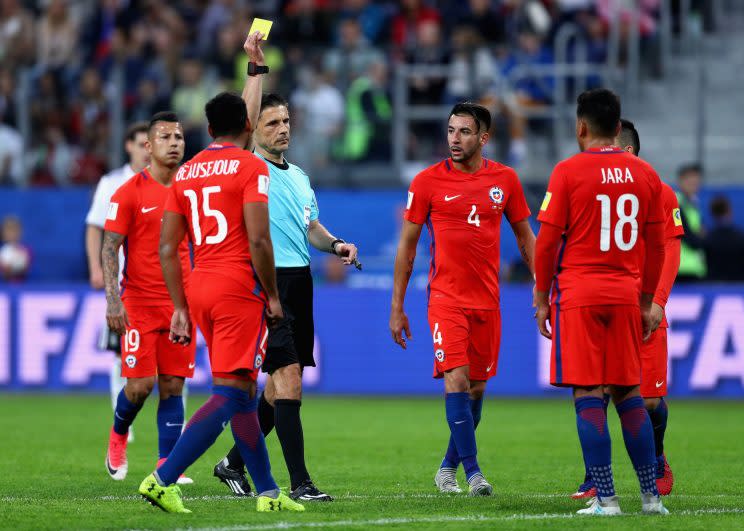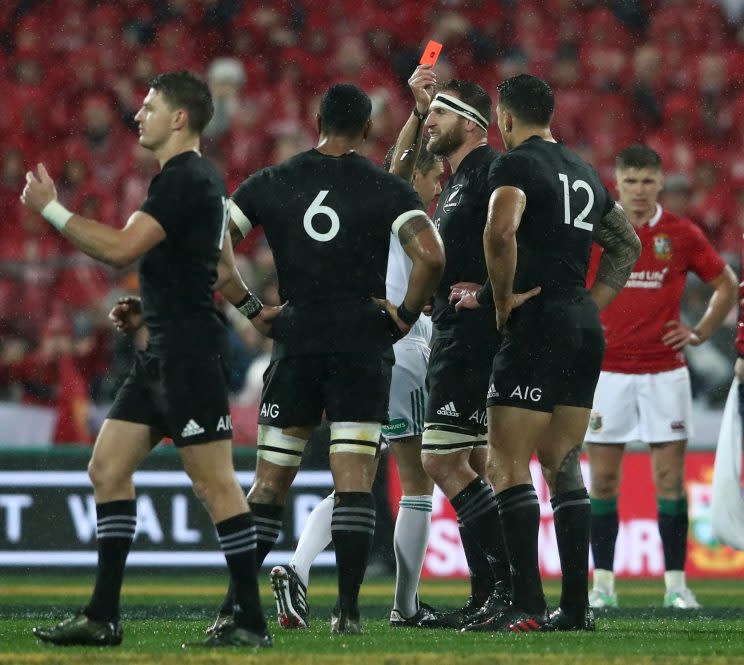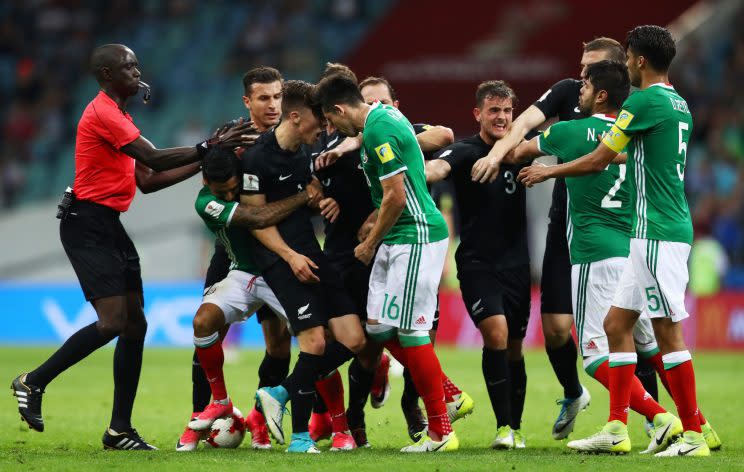VAR: After Confederations Cup farce, FIFA must act to save the system
A glimmer of hope. The VAR ‘experiment’ had gone horribly, dreadfully wrong during the Confederations Cup, but here, in the final, was a shot at redemption.
Gonzalo Jara had recklessly – if not intentionally – swiped an elbow at Germany striker Timo Werner and the referee had missed it.
Then those watching at home through ITV and various international channels saw the replay. A replay which showed Jara – the former West Brom and Nottingham Forest utility man – risk his continued presence in the showpiece event by ‘leaving one in’ on the RB Leipzig forward’s cheek.
READ MORE: How VAR needs to improve after a controversial A League debut
The commentary team had acted as judge and jury. If referee Milorad Mazic opts to go upstairs, they pondered, the Chile man would surely receive his marching orders.
Lo and behold, after a short delay the official ‘went upstairs’. The VAR system meant there were multiple pairs of refereeing eyes watching the same incident.
Surely, surely they couldn’t get this one wrong? You know what happens next.
Mazic, having watched the incident back, and presumably having words with his assistants, walked over to Jara and showed him a yellow card.

Rugby has TMO, cricket has DRS and football has a shambles.
Cricket’s review system mitigates the scope for human error as decisions are generally technical and objective.
Did the ball hit the bat, or were all the criteria for LBW met? They are yes or no answers, black and white.
Rugby’s equivalent is the most directly applicable, as it still heavily relies upon a subjective pair of eyes making the decision.

For the most part it works. It advances the standard of refereeing and by doing so minimises the scope for outright wrong decisions.
Somehow, FIFA – so traditionally frightened of modern technology – have implemented a VAR system with an embarrassing lack of clarity.
It is almost like they are setting it up to fail.
The technology should be assisting the match officials – yet it’s making fools of them.
Take Mexico’s clash with New Zealand earlier in the tournament, for example. The Kiwis were desperate to find an equaliser in injury time, and following a cynical Mexico foul, a mass brawl ensued, featuring at least two clear red card offences.
The solution is effortlessly simple, surely? Take a time out, go upstairs, review the incident, and deliver the punishments.
Only, that isn’t quite what happened. After apparently letting everyone off the hook, New Zealand shaped up for the free kick.
The referee – Bakary Gassama on this occasion – stopped play. The VAR wanted to relay a message. Gassama booked Hector Herrera.
Once again the players set up for the free kick, once again the referee stopped play. He booked another two players – Diego Reyes and Michael Boxall.

It was undoubtedly the most ‘football’ use of technology. It was scrappy, it was farcical, it made people doubt their beliefs about the new system.
The ineptitude has been astounding.
These are just two incidents. An honourable mention goes to Chile, who were denied an Eduardo Vargas goal against Cameroon, and tried to get the officials to go to a replay whenever they went down in the box.
All these incidents have done is emphasise the poor standard of officiating. Referees have had an almost impossible job without replays. It was well accepted.
But here it is. One piece of technology that can help mitigate their errors, help exonerate them of such an impossible duty and they’re continuing to make a mess of it.
Perhaps FIFA need to let the men upstairs make the ultimate decision and leave the on-field referee out of the equation. Almost certainly, they need to let the team captains use reviews as in cricket.
But unless world football’s governing body puts into play better guidelines and help train the officials in how to use them, the system is doomed to fail.
Unless, of course, that is what they are after.


